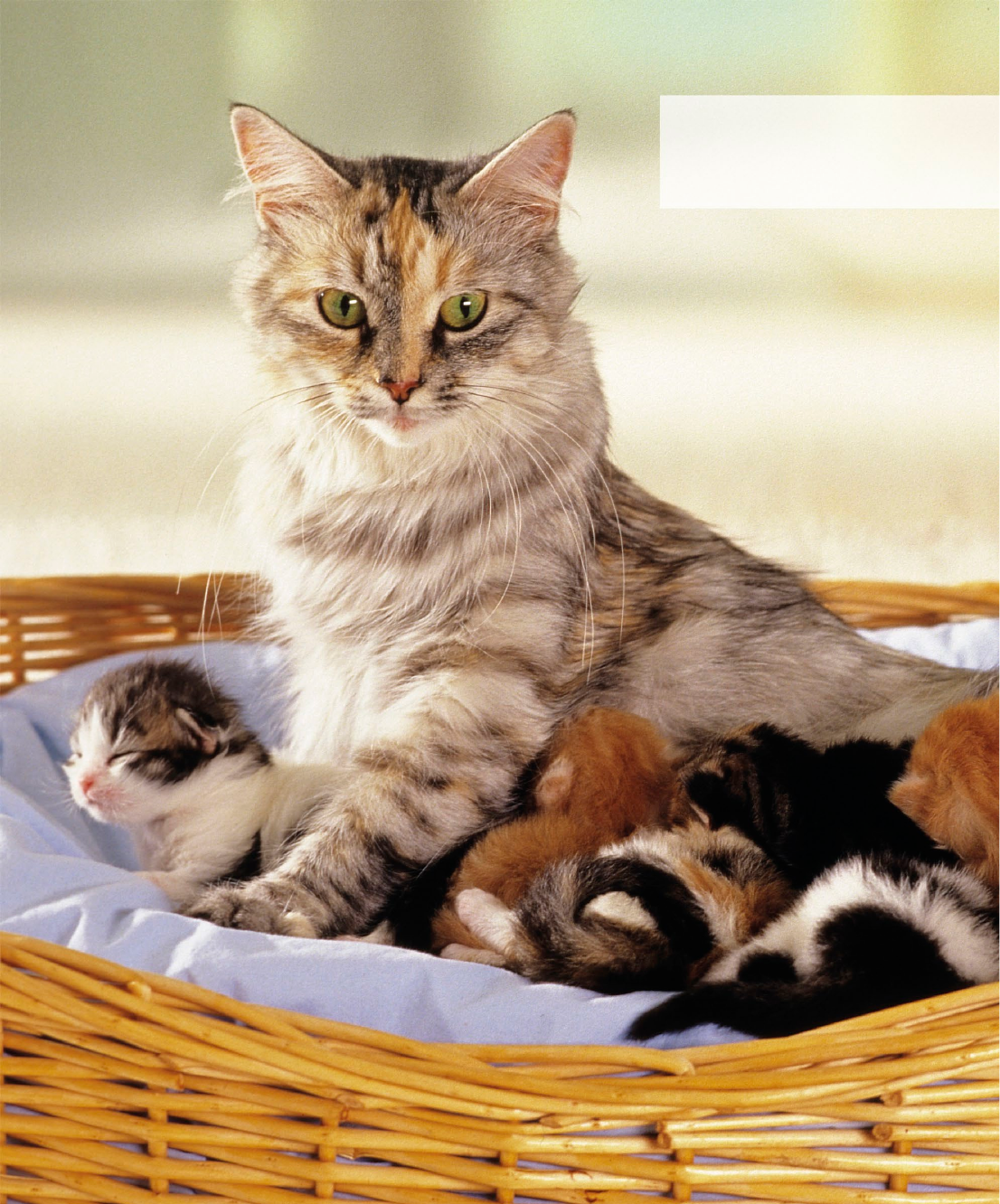
HEALTH AND BREEDING
246
A litter often includes a
mixture of coat colors
RESPONSIBLE BREEDING
Breeding purebred cats may sound like an enjoyable—and
potentially lucrative—endeavor, but becoming a breeder is
a big commitment. Most successful breeders have years of
experience behind them. If you decide to go ahead, be ready
to put lots of time (and money) into research, preparation,
and caring for your pregnant cat and her newborn kittens.
A big decision
Before trying your hand as a breeder, make sure you know
what you are getting yourself into. Get as much advice and
detailed information as possible. The breeder from whom
you bought your purebred female cat will be able to give you
valuable tips, including where to find a suitable purebred tom
to father the kittens. You will need a thorough understanding
of cat genetics, especially coat colors and patterns, because
the litter may have a mix of characteristics. You must also be
aware of genetic diseases associated with your breed
(pp.244–245). Purebred kittens sell for hundreds of dollars,
but most of this income will be offset by costs for the stud
fee, veterinary fees, heating for the kittens, registration fees,
and extra food for the mother and kittens (once they are
weaned). There may also be the long-term cost of owning
more cats if you can’t find suitable homes for your kittens.
Pregnancy and birth
If the mating was successful, your cat will be visibly pregnant
by about four weeks. Give her extra food and ask your vet
about any supplements she might need. Toward the end of
her pregnancy, make a nest for her out of a cardboard box
containing plain paper that she can tear up. You will need
to be around for the birth to ensure it runs smoothly.
Make sure you know what to expect—your vet can advise
you about what will happen
at each stage of the birth.
After that, your main job
will be to socialize the
kittens so they’ll be ready
for new homes when they
are about 12 weeks old.
PREGNANT CAT
A domestic cat’s
pregnancy usually
lasts between
63 and 68 days.
HAND FEEDING
If a kitten is not thriving, you
will need to feed him a cat-milk
substitute from a pipette,
about every two hours. Ask
your vet about how to do this.
NEUTERING
Surgical sterilization, or
neutering, is advised for any cat
you don’t intend to breed. In
males, the testes are removed
in a simple operation. Neutered
males rarely spray indoors. They
are less aggressive and less
likely to get injured in territorial
battles or catch diseases from
fighting or mating. Neutering
females, called spaying, is major
surgery in which the ovaries and
part of the uterus are removed.
It has a positive effect on
longevity, eliminating the risk of
common cancers in female cats.
US_246_247_responsible_breeding.indd 246US_246_247_responsible_breeding.indd 246 11/02/21 7:15 PM11/02/21 7:15 PM

HAPPY FAMILY
If all the kittens are healthy, the only
assistance the mother will need will be
extra food to help her produce milk for
her litter. If she trusts you, she may let
you handle her kittens from the start.
US_246_247_responsible_breeding.indd 247US_246_247_responsible_breeding.indd 247 11/02/21 7:15 PM11/02/21 7:15 PM
..................Content has been hidden....................
You can't read the all page of ebook, please click here login for view all page.
